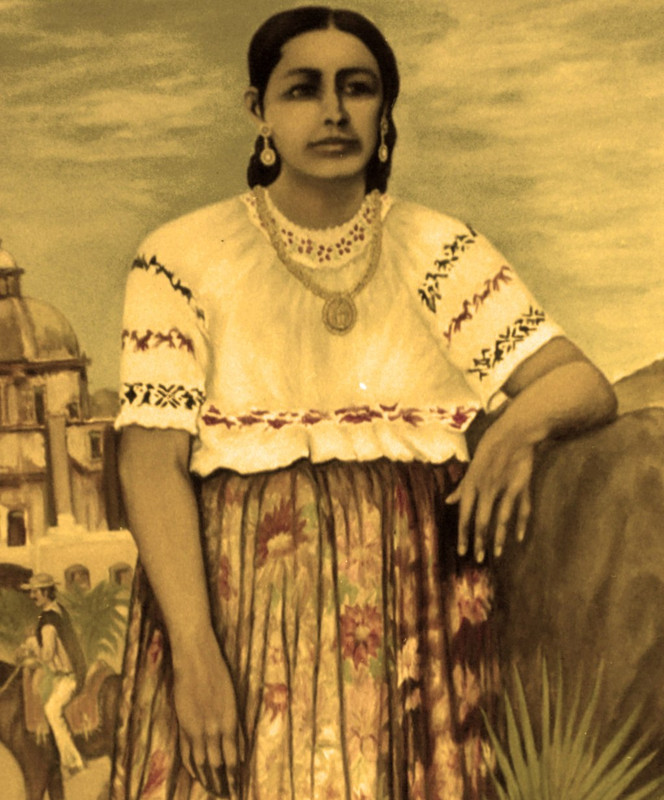1779 - 1843
By:
Alejandro Serrano
|
Date Added:
Edited

Antonia Nava de Catalán is described as a heroine of the Mexican War of Independence. “La Generala”, translated to “The General”, as she became known, is remembered for her willingness to sacrifice everything in order to achieve independence from Spain. She accompanied her husband, a volunteer who rose to the rank of colonel, throughout the war. Antonia Nava de Catalán was born on November 17, 1779 in Tixtla, a town in the Mexican state of Guerrero. She married Nicolás Catalán and together had five sons and three daughters. They moved to Chilpancingo, the capital of Guerrero, after their marriage, where they settled for a short time. They moved to the family Jaleaca when Nicolás Catalán had an argument with his father. They were living in Jaleaca when the war for independence broke out in 1810. Nicolás Catalán joined General José María Morelos, a Mexican Roman Catholic priest and revolutionary rebel leader who led the Mexican War of Independence movement after the execution of Miguel Hidalgo, at the end of 1810. Antonia Nava joined her husband throughout the war. Women who fought in the war were battling against times of oppression brought on by Spaniards, but they also fought to help the soldiers who were usually their loved ones. Antonia Nava persuaded many women to help by acting as cooks and porters and started a women’s battalion. General José María Morelos received orders from Miguel Hidalgo to raise a rebellion in the south and take the port of Acapulco. On February 8, 1811 General José María Morelos advanced on Acapulco. When they reached the Fort of San Diego they came under heavy fire. General José María Morelos retreated and thought Nicolás Catalán had died in the ambush. However, he later showed up unharmed. Instead, one of Antonia Nava sons had died in the attack. Instead of mourning, she brought her other four sons to fight for the cause. After this, the revolutionaries left for Chilpancingo and prepared for the capture of Tixtla. On September 12, 1813, Chilpancingo formally declared itself to be independent of Spain, known as the Congress of Chilpancingo. In 1817, while the forces of lieutenant Nicolás Catalán and general Don Nicolás Bravo were surrounded by royalist forces for 50 days, Antonia Nava and her women battalion armed themselves with machetes and clubs and went out to fight the enemy while they slept. After this event, Antonia Nava was called "La Generala". Antonia Nava de Catalán, demonstrated that women were able to take part in combat rather than just do the traditional cooking, cleaning, and providing health care. Antonia Nava lost three children during the struggle for independence. They are considered young heroes by the people of Guerrero. After the struggle, the family settled in Chilpancingo. Nicolás Catalán died in 1838. Antonia Nava de Catalán died in Chilpancingo on March 19, 1843, at the age of 63. Antonia Nava de Catalán was seen as a heroic figure that encouraged other women to join the war and bring courage to other soldiers throughout the years. In honor of her heroism, Tixtla De Guerrero erected a statue of her on February 15, 1987.
click hereShare your thoughts on this story with us. Your comments will not be made public.
Email
Copyright ©2016 - Design By Bureau Blank